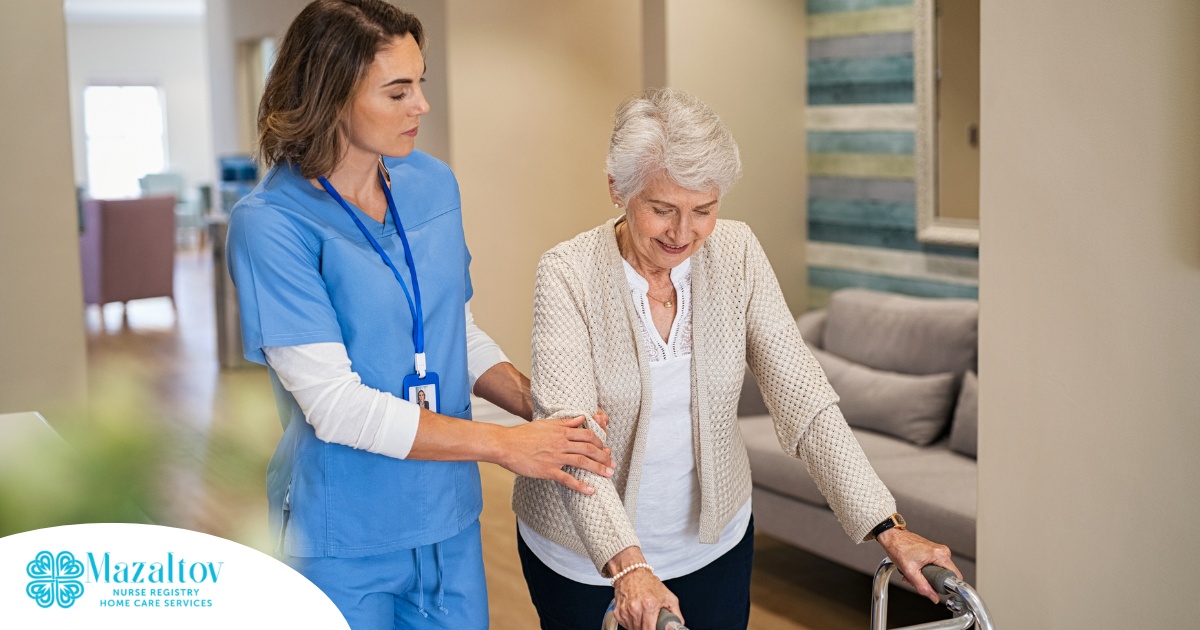While being a professional caregiver in Palm Beach is highly gratifying, it can also be physically and emotionally demanding. Excelling in your role as a professional caregiver while assisting aging, ill, or disabled clients requires a unique set of proficiencies and abilities. Whether you are new to the caregiving field or a seasoned pro, read on to explore seven essential skills employers look for when interviewing caregivers for their open jobs.
Professional Caregiver Skill 1: Lifting/Transferring Clients Properly
One of the most essential skills for a caregiver is the ability to lift and transfer clients safely and properly. Improper lifting techniques can lead to serious injuries for both the caregiver and the client. To improve in this skill area, caregivers should attend training sessions on proper lifting techniques, use assistive devices such as transfer belts or slide sheets, and always ask for help when needed.
Professional Caregiver Skill 2: Nutritious Meal Planning and Preparation
Serving nutritious meals is essential for your clients’ overall health and well-being. Caregivers should have basic cooking skills, knowledge of dietary restrictions, and the ability to plan and prepare balanced meals. To improve in this skill area, caregivers can take cooking classes, consult a dietitian for meal planning guidance, and experiment with new recipes to add variety to their clients’ diets.
Professional Caregiver Skill 3: Effective Communication
Effective communication helps build trust and rapport with clients and family caregivers. Top-notch caregivers must listen actively, communicate clearly and respectfully, and advocate for their clients’ needs. To enhance their communication skills, caregivers can practice active listening techniques, take communication courses, and seek feedback from clients and colleagues.
Professional Caregiver Skill 4: Compassionate Care
Compassion is at the heart of caregiving. Caregivers should show empathy, patience, and kindness towards their clients, especially during difficult times. Compassionate caregivers know how to practice self-care techniques to prevent burnout, participate in mindfulness activities to enhance their compassion, and seek emotional support from colleagues or support groups when needed.
Professional Caregiver Skill 5: Personal Care Assistance
Assisting clients with personal care tasks such as bathing, dressing, and grooming requires sensitivity and respect for the client’s privacy and dignity. Caregivers should have the necessary skills and training to assist with personal care tasks with professionalism and compassion. To improve in this skill area, caregivers can attend personal care training programs, shadow experienced caregivers to learn best practices, and seek client feedback on their preferences for personal care assistance.
Professional Caregiver Skill 6: Organization
Organization is an essential skill for caregivers to manage their tasks, schedules, and client information effectively. Effective caregivers understand how to track their clients’ medications, appointments, and daily care routines. To improve in this skill area, caregivers can create a system for organizing client information, develop a daily task list, utilize calendars or scheduling apps, and maintain a clean and orderly work environment. Staying organized helps caregivers provide efficient and quality care to their clients while reducing the risk of errors or oversights.
Professional Caregiver Skill 7: Cleanliness
Cleanliness is essential for maintaining a safe and healthy environment for clients who live independently. Caregivers should be able to perform light housekeeping tasks, such as dusting, vacuuming, and sanitizing commonly used surfaces. Successful caregivers know how to pair proper cleaning techniques and products with an established cleaning routine to maintain a clean and hygienic living space that promotes their clients’ health and well-being.
Home Care: A Great Place to Master Your Caregiving Skills While Working as a Professional Caregiver in Palm Beach
Working in home care offers several career advantages when compared to other settings, such as a nursing home, hospital, or assisted living facility. Here’s what in-home caregivers love most about their jobs:
Personalized Care
Unlike institutional settings, in-home caregivers can provide one-on-one care to their clients, allowing for a more personalized and tailored approach to meeting each client’s individual needs and preferences. This personalized care can lead to stronger relationships between caregivers and clients and a higher level of satisfaction for both parties.
Flexible Scheduling
In-home caregivers enjoy more scheduling flexibility than peers employed in institutional settings. This enhanced job flexibility allows caregivers to balance their professional and personal lives more efficiently while going to school or raising a family. Working part-time or full-time can provide a better work-life balance for caregivers, allowing them to meet their own needs while still providing high-quality care to their clients.
Comfort and Security
Clients often feel more comfortable and secure receiving care in their homes, surrounded by familiar surroundings and belongings. Being in a familiar and comfortable environment can contribute to clients’ sense of security and well-being, leading to better overall outcomes in their care. In-home caregivers play a vital role in creating a safe and comfortable environment for their clients, helping them feel more at ease and supported during their care.
Family Involvement
In-home caregivers have the unique opportunity to work closely with the client’s loved ones. This collaborative approach allows caregivers to involve family caregivers in the care process, providing valuable support and communication to ensure the client’s needs are met effectively. Establishing solid relationships with family members empowers caregivers to create a cohesive care team to provide the best possible client care.
Professional Growth and Development
Working in home care provides numerous opportunities for caregivers to grow and develop professionally. Caregivers often work independently, allowing them to hone their skills and expertise in various caregiving areas. Additionally, in-home caregivers assist diverse clients with different needs and challenges, allowing them to expand their knowledge and specialize in specific caregiving areas.
As we’ve seen, home care is a great place for professional caregivers to hone their skills, make a difference in the lives of others, and find fulfillment in their caregiving careers. Is home care your career calling?
Master Your Caregiving Skills with Us
If you are a professional caregiver in Palm Beach, Mazaltov Home Care invites you to join our winning team so you can master your caregiving skills. At Mazaltov Home Care, we understand that our caregivers are the lifeblood of our organization. Due to our expanding client load, we are currently seeking qualified candidates to fill several exciting caregiving positions. While proudly serving the Palm Beach, Broward County, Boca Raton, Boynton Beach, Delray Beach, Coconut Creek, Deerfield Beach, and Davie communities, we support clients and families with a comprehensive lineup of dignified home care services such as Alzheimer’s & Dementia Care, Companionship Care, 24/7 Hourly Care, Parkinson’s Disease Care, Medication Supervision, Personal Care, Respite Care, and Transportation.
As a highly valued member of the Mazaltov Home Care team, you’ll enjoy a fast-paced, positive work environment where open communication is valued and hard work is rewarded. We also offer competitive pay, flexible scheduling, ongoing caregiver skills training, and career advancement opportunities galore. No matter your experience level or education, we’d love to hear from you! To learn more about our professional caregiver jobs and training programs, visit us at mazaltovcare.com.



